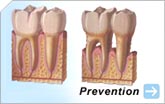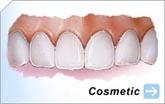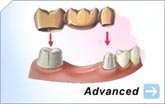 |
 |
 |
|
Dental Coverage Now Saves Big Money Later by Drew Harris |
||
|
Simply put, if you don't go to the dentist regularly now, you will later, and it will cost you thousands of dollars more. Many families end up forking out over $8,000 for dental procedures and repairs in later years. This is because they couldn't afford regular, twice-a-year dental check-ups in the early years of their marriages and families. I have always known going to the dentist mattered more than whether I had dental coverage or not. Yet if ever there was a person with a good excuse not go to the dentist regularly, it was me. At the age of 8, my dentist was having trouble freezing my mouth. After 45 minutes without success, he drilled into my cheek. Later that week, my mother sat me down and told me that this particular dentist had snapped, killing his ex-wife, her boyfriend and himself. No kidding, I thought at the time. That memory still sends shivers down my back, even nearly 30 years later. Yet despite this, I have always made myself go to the dentist. That has been particularly true for the last 12 years as a parent of two girls. Dental Associations recommend that you have a dental cleaning and check-up every six months. Without dental coverage, regular dental visits will cost about $100 to $140 a year for two visits. Brushing is vital, as is flossing. Children are supposed to floss daily. Earlier on, I waited too long to go to the dentist about two problem teeth. By the time they were looked at, I was facing a $1,000 bill for root canals if I wanted them saved. There was no way I could afford that, so I had the teeth pulled. For that same amount of money, $100 per month, I could have provided my family nine years of dental coverage. Dental coverage options today include dental insurance, offered as part of company benefits packages through employers. For many, many people though, this is not an available option due to growing unemployment, downsizing, or reduced company benefits. As a result, people have started looking online to explore their dental benefit options. The most popular question being asked is what is the difference between Dental Insurance and Discount Dental Plans. Dental insurance is utilized by large groups and businesses to cover their employee's dental care. Monthly premiums are paid for defined coverage. Premiums for dental insurance may be as much as $30 per month for individuals and over $100 per month for family plans. Dental insurance is not readily accessible to individuals and families. There are annual spending maximums, deductibles, waiting periods for certain procedures, and limitations and exclusions on care. Dental coverage will include the cost of preventive services (such as cleanings and exams) at 100% after deductibles are met. For millions of North Americans, discount dental plans are an ideal form of dental coverage when benefits are not available through their work. The plans are designed to provide consumers access to dental networks at reduced rates. The big plus is the plans are affordable to join and are the most widely available dental programs for individuals and families. The plans work differently than insurance but offer real and substantive cost savings on dental procedures. Dental coverage includes secured discounts on most dental services, such as dental exams, routine cleanings, fillings, extractions, root canals, dentures, crowns, and braces. Most discount dental plans provide a fee schedule with the discounted fees listed out in the membership materials. In some cases, dental insurance and discount dental plans can be used together in certain situations to maximize savings. For years, my wife and I used dental plans. In recent years, we now both have dental insurance through our employers. While the type and level of our dental coverage has varied through the years, we have always made ongoing dental health a priority. About The Author dental-coverage.net is a huge web portal resource for dental plans, dental coverage and dental insurance. Featuring hundreds of pages of resources, reviews, referrals and ideas.
|